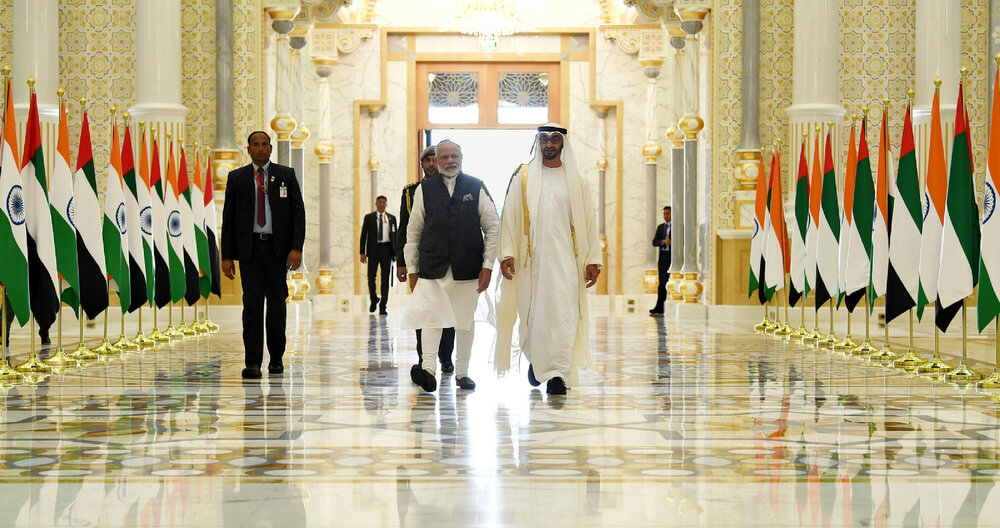With Donald Trump's victory in the presidential election last Tuesday, India looks like one of the world's most likely biggest winners from a future Trump term.
The two nations now have leaders who call each other "friends" but also owe their leadership to the Make America/India Great Again strategies.
Does the intertwining of two strong sovereigntist policies, which have equally high ambitions towards global leadership, create more points of contact and shared interests, or points of conflict?
The supreme shared interest of the US and India is the containment of China in the Indo-Pacific, in economic and security terms, and it will continue to determine the main course of relations between the two countries in the next four years.
India will be the biggest global beneficiary of Trump's expected economic tightening toward China, the introduction of import tariffs, and the investment disincentives.
Response to Chinese economic measures
Trump is returning to the White House at a time when, due to China's large state incentives, investments that went from China to India in the past two years are slowly returning.
Therefore, the timing of the Trump administration taking office presents India with a favourable opportunity to counteract the impact of the October Chinese stimulus on the growth of the domestic market, demand, and return on investments.
"Under a Trump 2.0 presidency, we expect a preference to do business with India and a reversal of recent negative FPI (Foreign Portfolio Investment) flows, driven by supply chain realignments. With Trump’s presidency, India could see renewed FPI inflows as trade and economic alignment strengthen," said Manish Bandhari, the Founder of Vallum Capital Advisors.
Trump's policy of economic protectionism will hardly bypass India's large exports to the US
However, Trump's policy of economic protectionism will hardly bypass India's large exports to the US, regardless of political declarations of alliance and friendship.
In the last mandate, Donald Trump criticised India for high tariffs on imports of American goods; furthermore, he announced that in the new mandate, he would focus more on reciprocity in terms of tariffs.
Risk for India's large export sectors
The most important of India's export sectors—IT, pharmaceutical, and textile—may suffer if this comes to pass. The new administration's eventual isolationist policy towards India, and not just China or the European Union, will negatively affect the constantly growing trade exchange, surpassing $190 billion, and potentially undermine the US's status as India's leading foreign trade partner.
However, other aspects will significantly influence future trade relations, particularly security. Security is a top priority for both the US and India, and Trump's election to the White House shouldn't alter this.
Trump has no reason to discourage the high-level partnership with India in regional political and security forums over the next four years, despite his aversion to multilateral economic and political arrangements during his first presidential term.
Trump has no reason to discourage and diminish the potential of joint participation in the Quad platform with Australia and Japan
Trump, with all his isolationism, has no reason to discourage and diminish the potential of joint participation in the Quad platform with Australia and Japan.
Both India and the US recognise that this geopolitical platform can realise their Indo-Pacific regional interests to the extent and range of states acceptable to both governments.
Furthermore, the Quad provides an ideal platform for the expansion of technological cooperation and business in the military complex, where both economies see double gains in terms of political security and economics.
Will the corridor to Europe be reactivated?
Trump's return to the White House may be important to India because it carries the potential to reactivate the India-Middle East-Europe Economic Corridor (IMEC) project, which has stalled due to the escalation of conflicts in the Middle East.
This mega-project, also conceived as a counterpart to China's Belt and Road Initiative, was practically put on hold just a month after it was launched at the G20 summit in India in September 2020, due to the Hamas terrorist attack on Israel and the Israeli military operation that immediately followed.
 Trump's return to the White House carries the potential to reactivate the India-Middle East-Europe Economic Corridor project
Trump's return to the White House carries the potential to reactivate the India-Middle East-Europe Economic Corridor project
Expectations from Trump's foreign policy, especially in crisis regions, quite rightly go towards calming the burning conflicts, with the one in the Middle East undoubtedly at the top of the list.
The IMEC project has a high chance of returning to the agenda if Trump repeats the strategy from his first term. All parties directly involved—both India and the US's Middle Eastern allies—the UAE and Saudi Arabia—as well as the three largest EU economies—Germany, France, and Italy—are undoubtedly eagerly working to reactivate the project.
This is also true for the US, even under Trump's presidency, because the benefits that the project will bring to the closest US allies in the corridor greatly exceed the reservations that Trump and his administration have regarding multilateral political and economic projects.